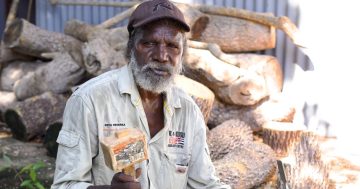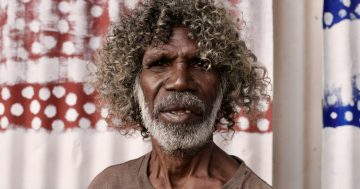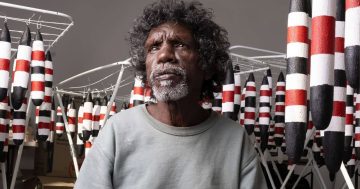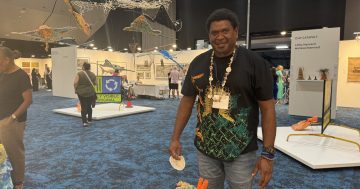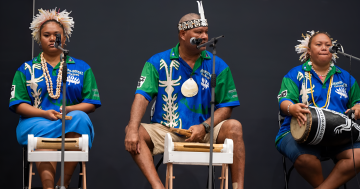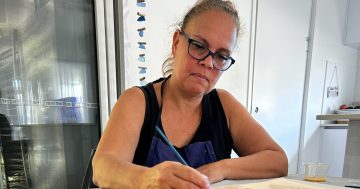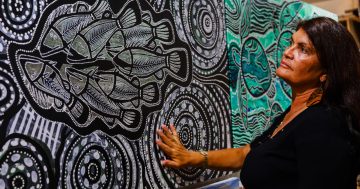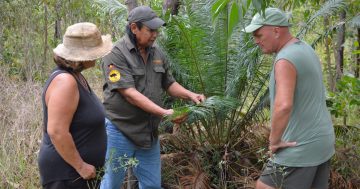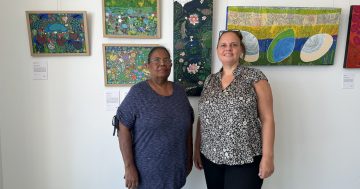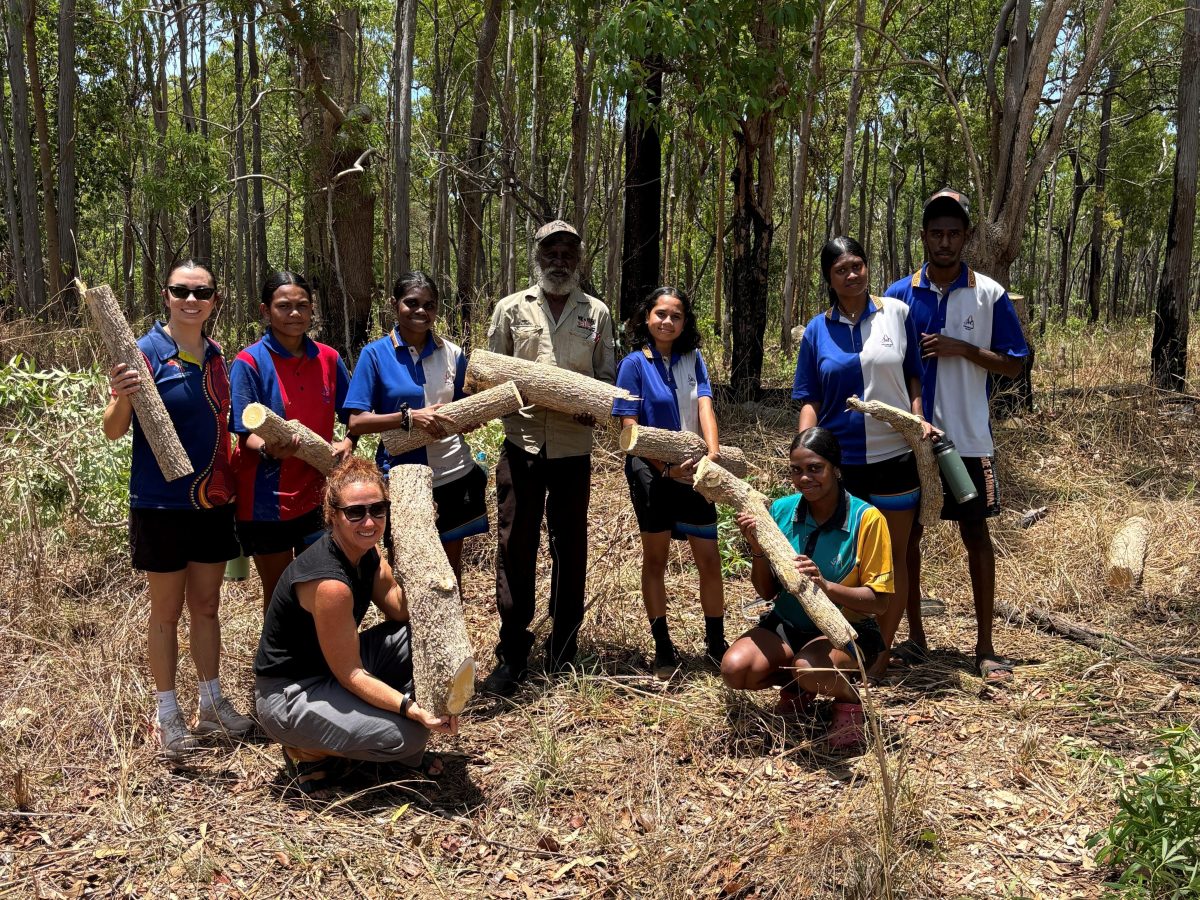
Aurukun senior artist Keith Wikmunea teaches students from Western Cape College the skills and cultural meaning behind his award-winning artwork. Photo: Supplied.
For years, the passing down of art through generations has been an important part of cultural resilience, and six Western Cape College (WCC) students were the lucky recipients of new skills and knowledge during a recent visit to Aurukun.
Guided by award-winning artist Uncle Keith Wikmunea, the students were treated to an in-depth look into the cultural significance behind his sculptures and the materials he uses.
“It feels good to share my art practice with young people, especially when they are interested to learn,” Mr Wikmunea said.
“Art can take you around the world and provides opportunities to teach others about important cultural matters.
“This is one of the most challenging but important things to do as a senior artist from Aurukun; my people have always passed on their cultural knowledge through art, song, dance and language.”
The students participated in collecting some of the milkwood used in the sculptures, and even got to preview a large tree sculpture Mr Wikmunea is currently working on for an exhibition.
“This tree includes ochre body paint designs from my clan and my cockatoo totem,” he explained.
“The knowledge of how to carve my totems was passed down to me by my late father, and I’m keeping it alive at the art centre.”
Teacher Stephanie Kurz, who accompanied the students on the trip, said the experience was an invaluable addition to the Year 11 and 12 Aboriginal and Torres Strait Islander Studies program.
She said the group was made up of three senior students enrolled in the program, and three junior students who had shown a keen interest in art.
“The goal was to engage students in on-Country learning, helping them connect their curriculum studies to local knowledge and cultural experiences,” she said.
“The students highly valued the experience and were inspired by Uncle Keith’s work and the profound meaning behind his art.
“Exposing students to first-hand local knowledge enhances their learning and deepens their cultural awareness, [and] as teachers, it is vital that we learn from the rich history and culture of this land, and recognise the invaluable role of Elders and local people as resources in this learning journey.
“Not being from Cape York, on-Country experiences are invaluable not only for our students, but also for us as educators, helping us to deepen our understanding and better integrate local perspectives into the classroom.”
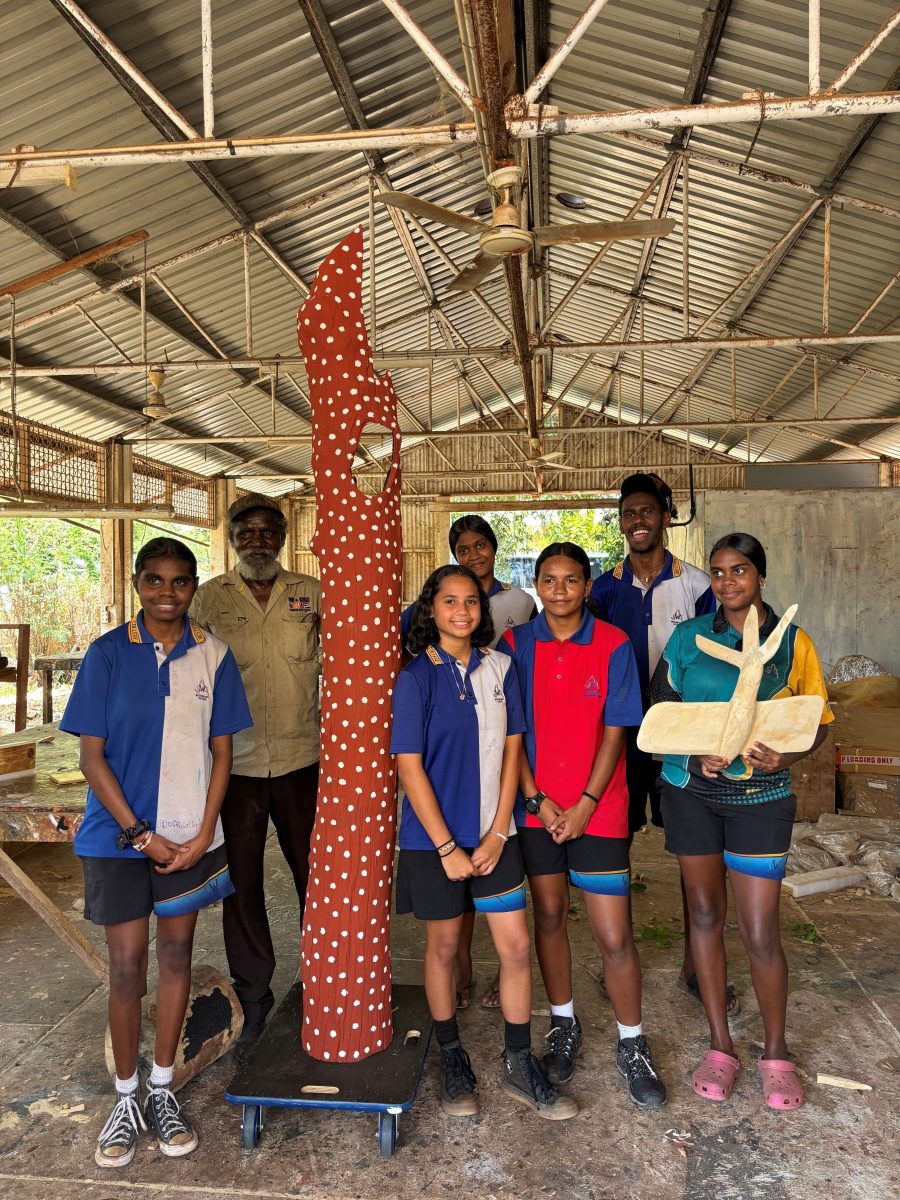
The Weipa students were treated to a preview and cultural explanation of Mr Wikmunea’s new tree sculpture. Photo: Supplied.


